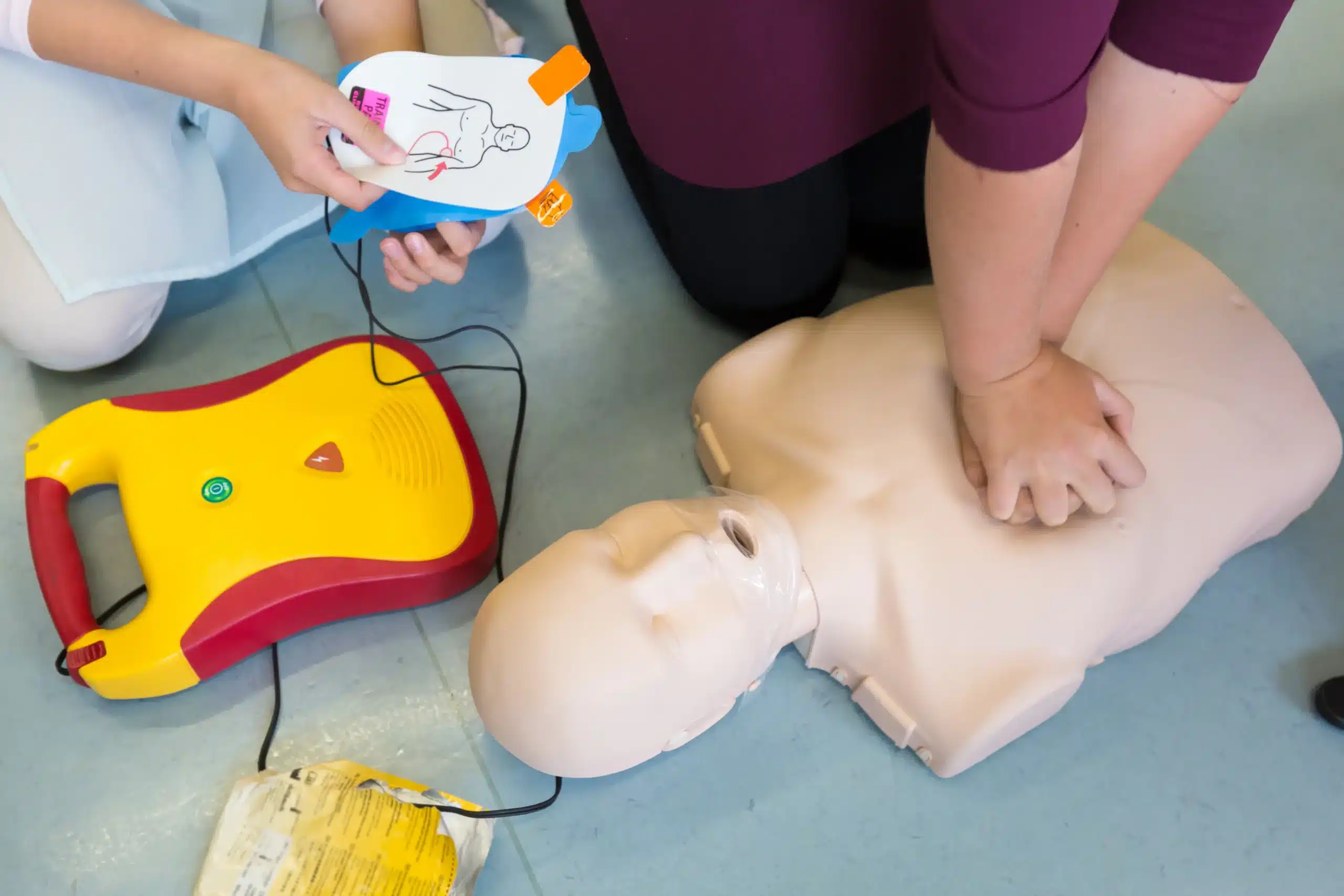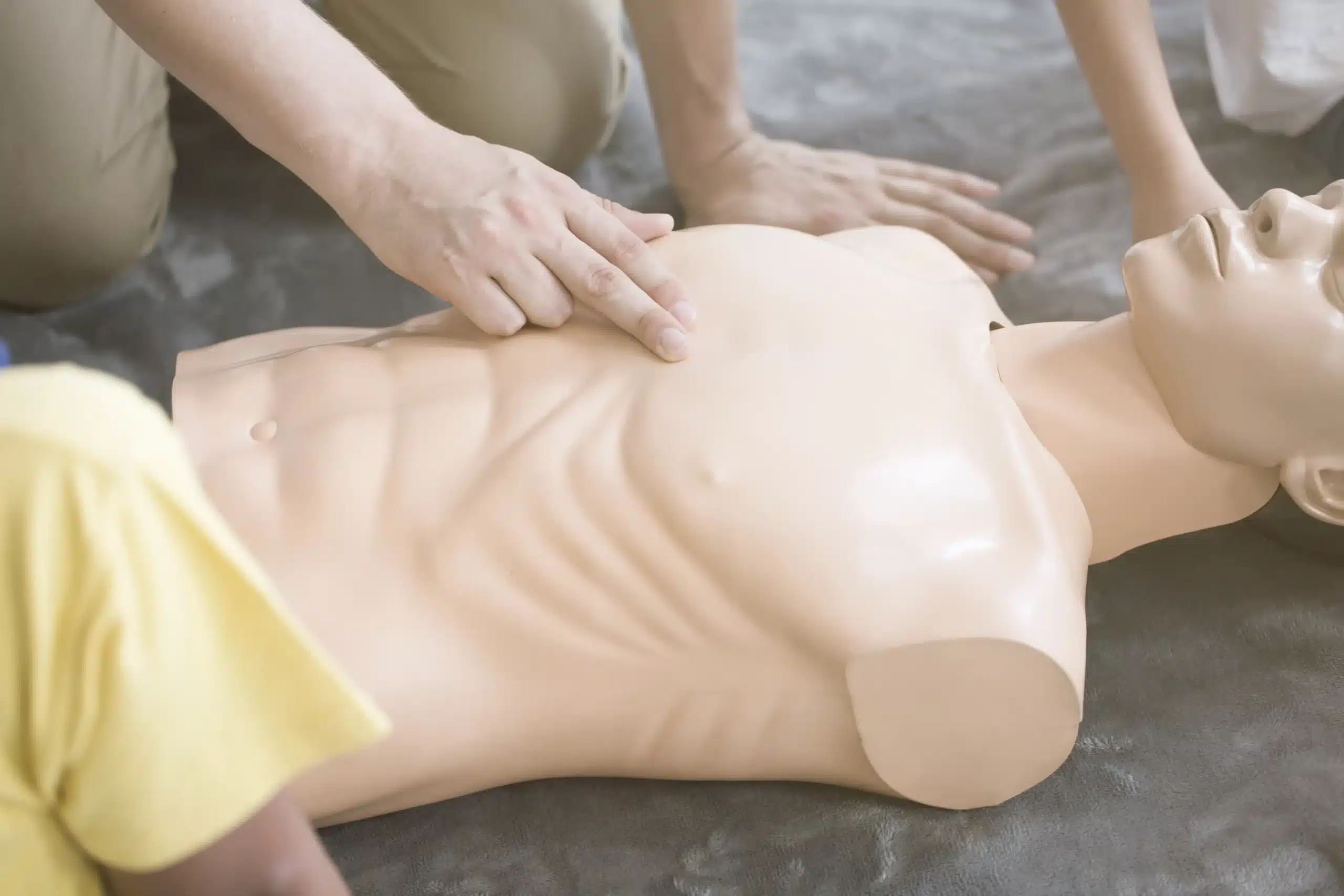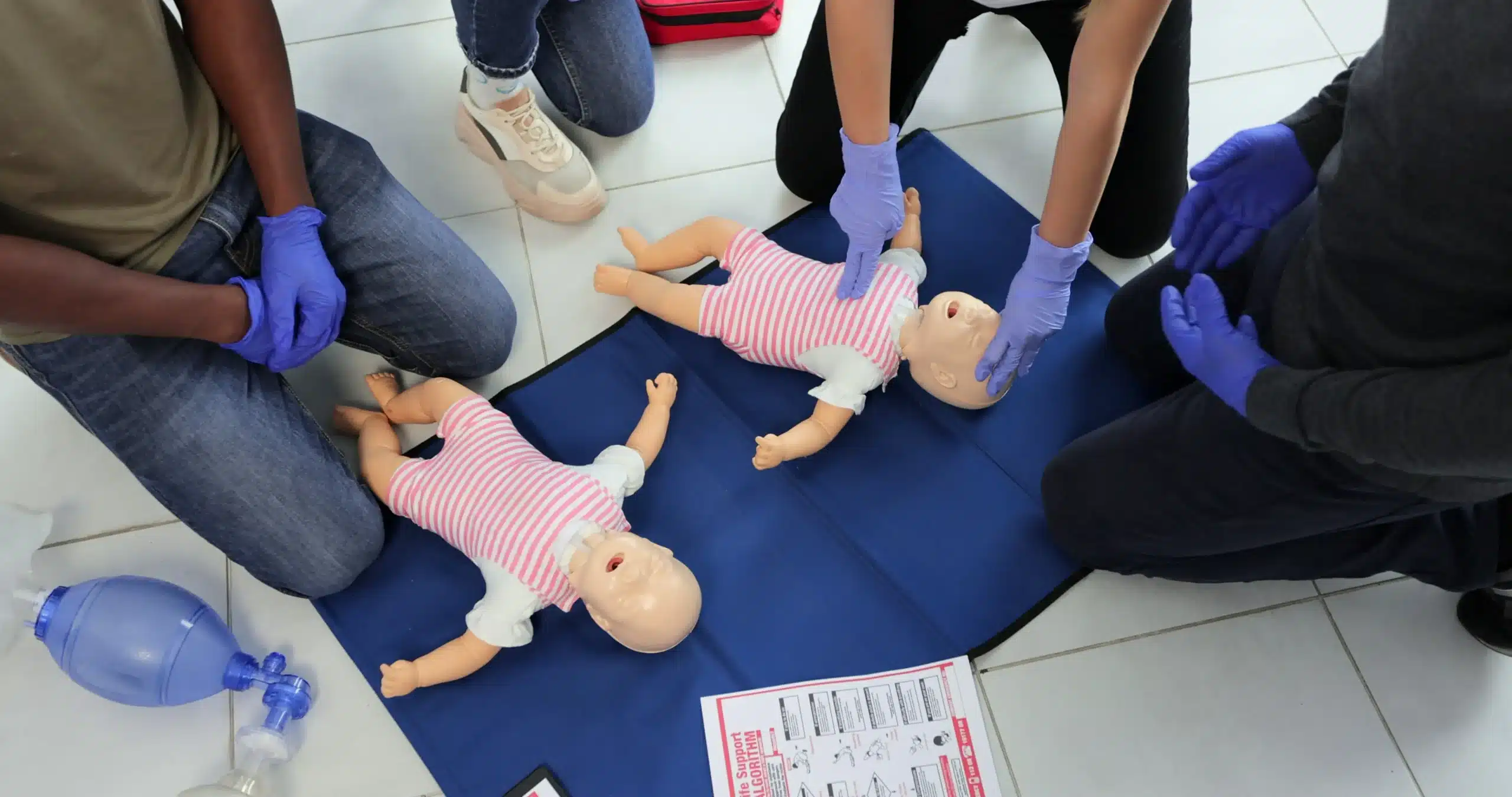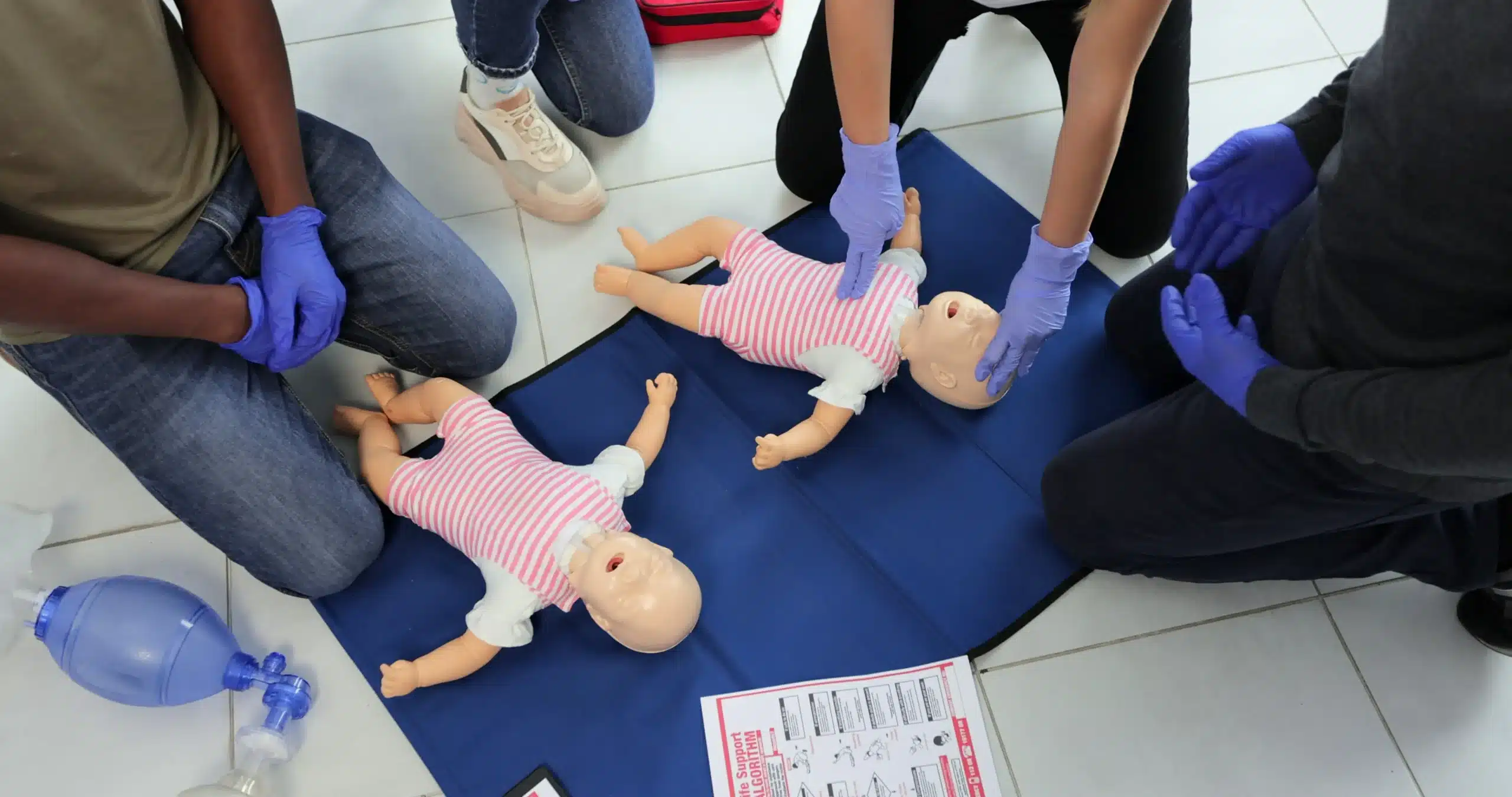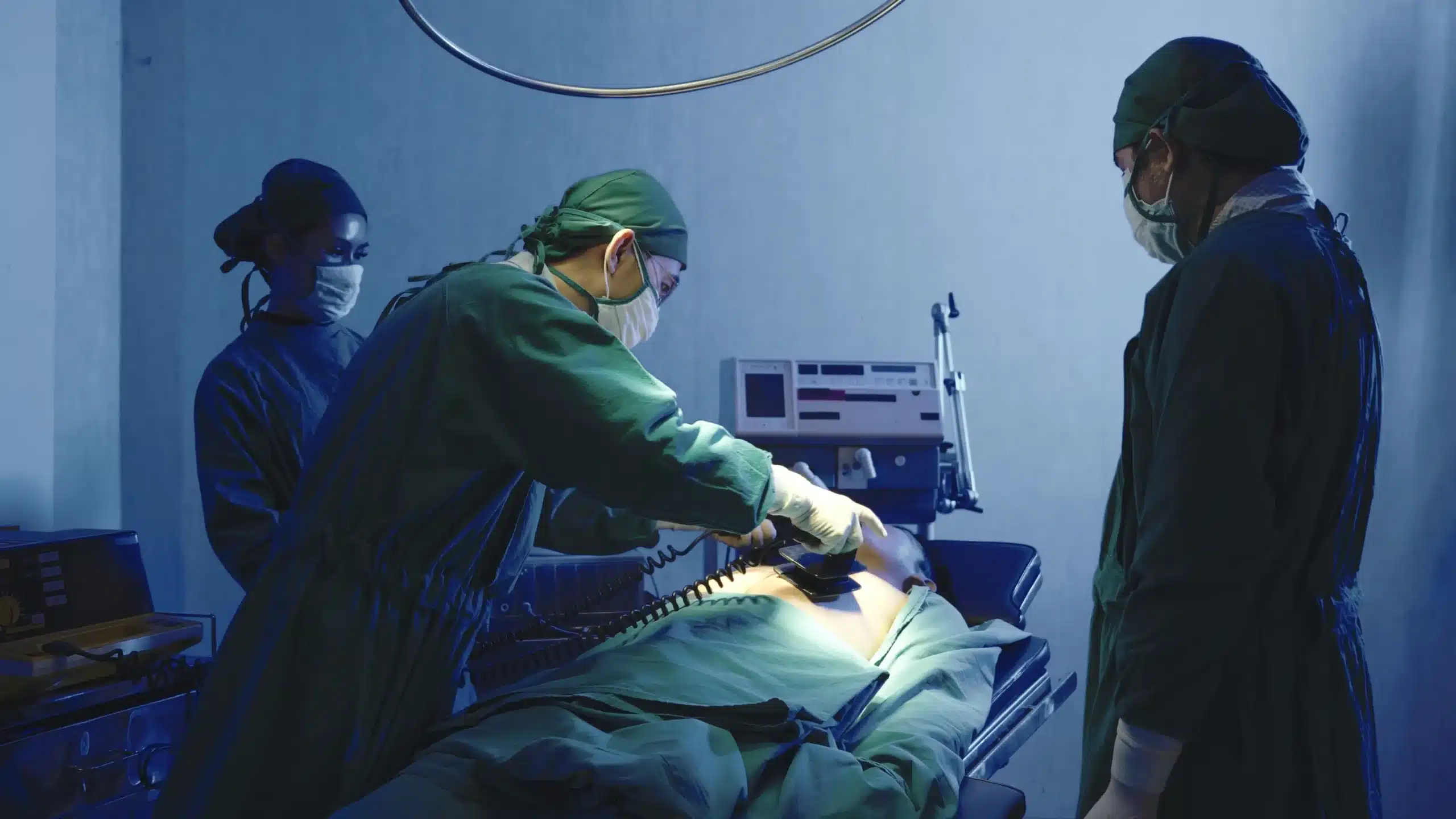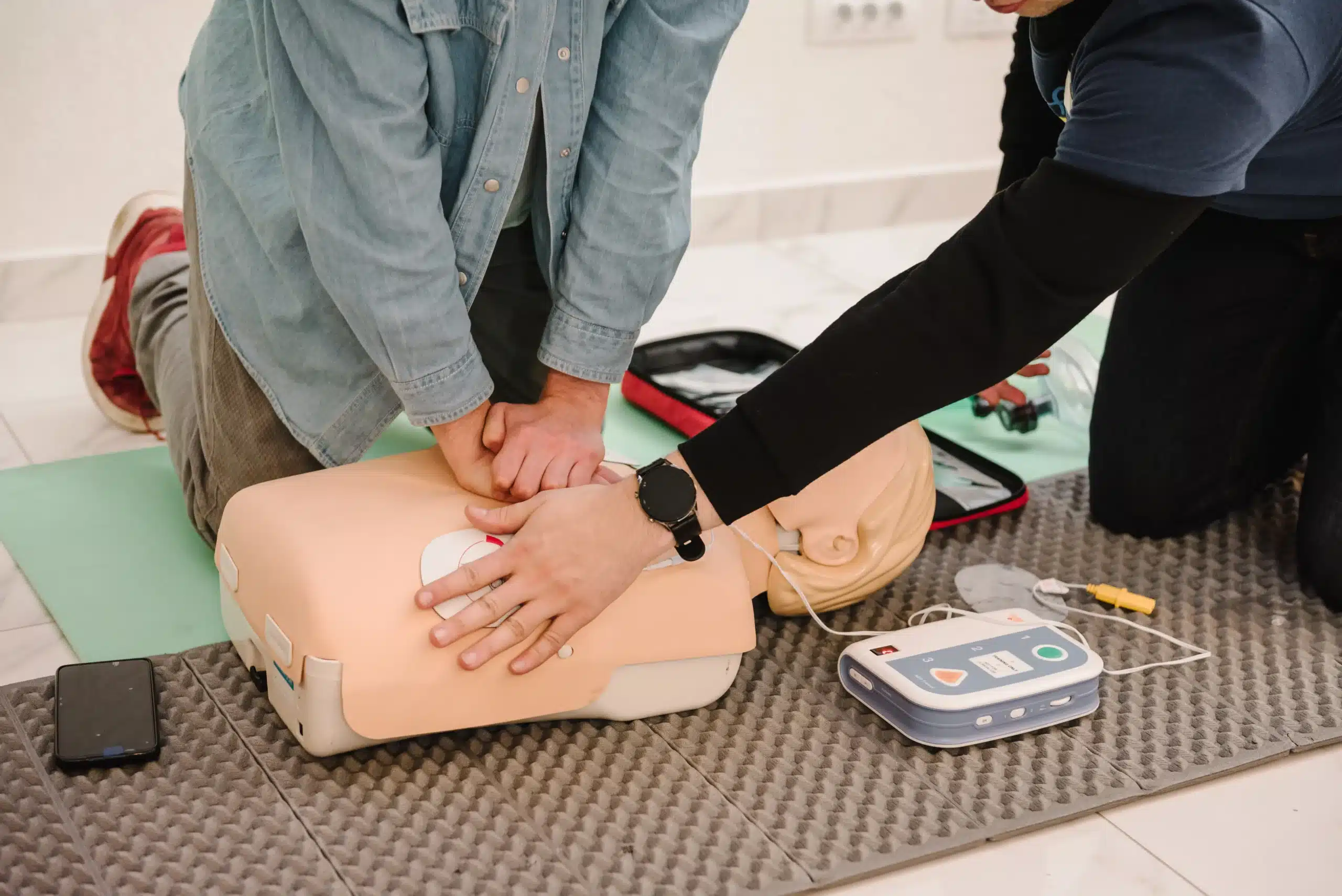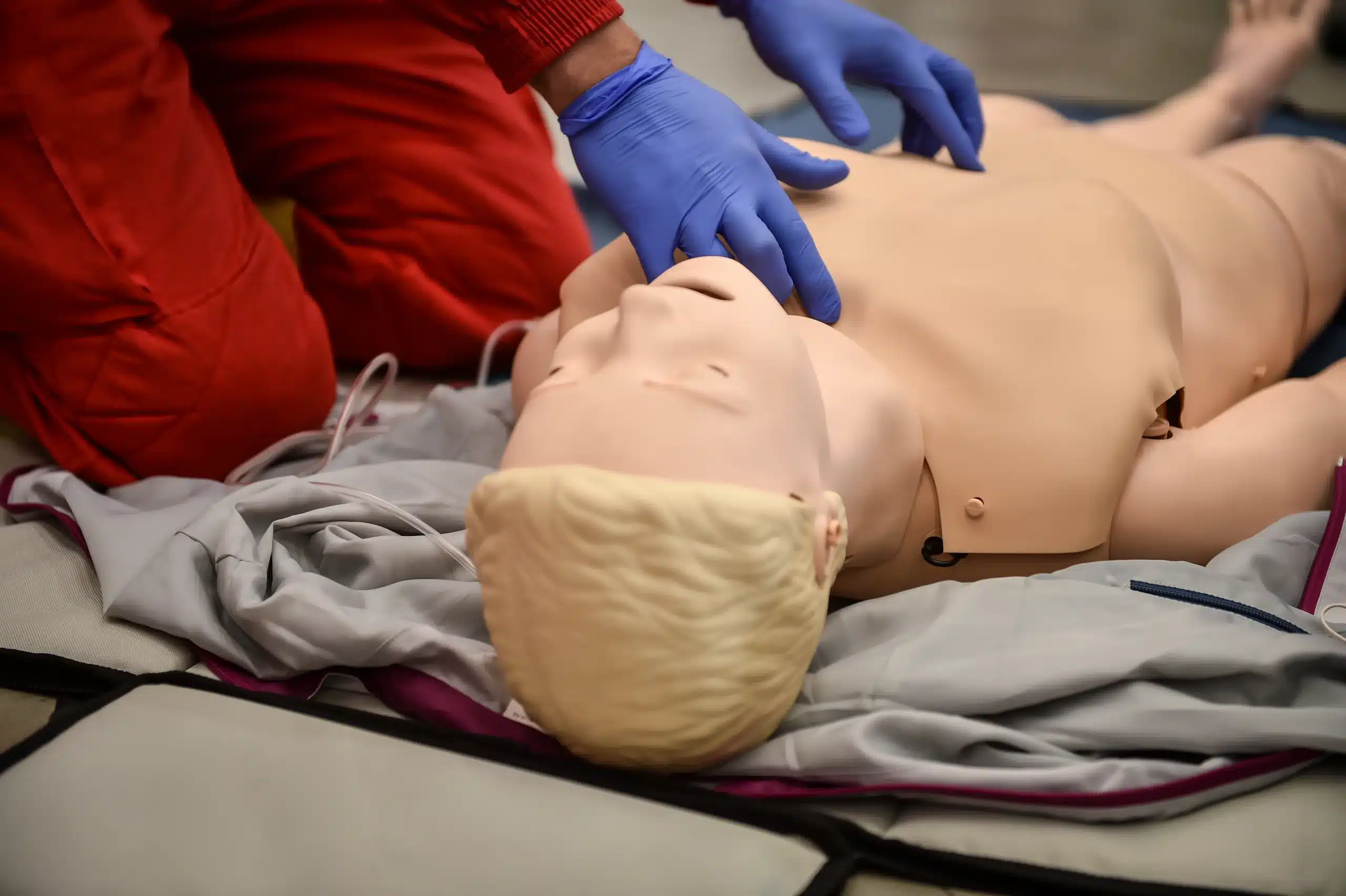Are you a healthcare provider in Berkeley looking to enhance your neonatal care skills? NRP certification is a must-have for anyone involved in newborn care, providing the essential training to handle emergencies effectively. This article serves as your comprehensive guide to NRP in Berkeley. We’ll explore the certification process, discuss the benefits of NRP training, and provide a clear overview of course content and duration. We’ll also delve into the costs associated with NRP certification and offer valuable tips for preparing for your exam. Plus, we’ll highlight some of the top NRP training providers in Berkeley to help you make the best choice for your career.
Key Takeaways
- NRP certification equips you with essential newborn resuscitation skills: This training provides the knowledge and confidence to manage emergencies and stabilize newborns requiring intervention, ultimately leading to improved patient outcomes.
- Choosing the right NRP course involves several key considerations: Evaluate factors such as cost, the blend of online and in-person learning opportunities, instructor expertise, and the program’s adherence to local healthcare protocols. Directly contacting potential providers with your questions is always a good idea.
- Effective NRP training requires active participation and ongoing practice: Thoroughly review the provided materials, dedicate time for hands-on practice, and consider collaborating with peers to reinforce your understanding of key concepts and refine your skills. Remember that strong communication and teamwork are vital in real-world emergency situations.
What is NRP?
What is the Neonatal Resuscitation Program (NRP)?
The Neonatal Resuscitation Program (NRP) equips healthcare professionals with the skills to manage childbirth emergencies. This program focuses on resuscitating newborns, providing essential training for neonatal care teams. It emphasizes a structured, team-based approach to quickly assess and stabilize newborns needing intervention. The training covers everything from basic life support to advanced procedures, ensuring healthcare providers can confidently handle various emergency situations. This preparation is crucial for positive outcomes in those critical first moments of a newborn’s life. For a deeper dive into NRP certification, take a look at this helpful guide.
Why is NRP Essential for Berkeley’s Healthcare Community?
NRP certification is vital for Berkeley’s healthcare providers. Offered by the American Academy of Pediatrics (AAP) and the American Heart Association (AHA), these courses provide the knowledge and skills necessary for life-saving interventions for newborns in distress. Given the unpredictable nature of childbirth, NRP-trained professionals are crucial for ensuring the best possible outcomes for newborns in Berkeley’s hospitals and birthing centers. This training strengthens the community’s healthcare system, ensuring preparedness for any neonatal emergency.
How Does NRP Benefit Daily Practice?
NRP training significantly enhances a healthcare provider’s ability to respond effectively in neonatal resuscitation situations. It empowers them with the confidence and competence to provide immediate, life-saving care to newborns requiring intervention. This translates to improved patient outcomes and a higher standard of care within the healthcare setting. Beyond technical skills, NRP emphasizes teamwork and communication, fostering a more coordinated and efficient response during emergencies. This comprehensive training ultimately benefits both patients and the healthcare professionals providing their care.
Find NRP Certification Classes in Berkeley
Finding the right NRP certification course in Berkeley depends on your learning style and schedule. Explore the different options available:
Blended Learning: Online Coursework and In-Person Skills Sessions
Blended learning offers flexibility for busy professionals. You’ll complete the online portion of the NRP essentials course, covering the core lessons of the Textbook of Neonatal Resuscitation. This format is suitable for anyone involved in newborn care, allowing you to learn the foundational material at your own pace. After finishing the online modules, you’ll attend an in-person skills session to practice resuscitation techniques. This hands-on component ensures you can apply your knowledge in real-world scenarios. Check with your chosen provider for their specific blended learning curriculum.
Fully In-Person NRP Courses
For those who prefer a traditional classroom setting, fully in-person NRP courses are available. These courses provide comprehensive training and allow for direct interaction with instructors and peers. The American Academy of Pediatrics (AAP) and American Heart Association (AHA) require in-person training for NRP certification, so this format ensures you meet all requirements. In-person courses offer a structured learning environment and provide immediate feedback.
Course Duration and Content Overview
NRP courses in Berkeley typically involve lectures, demonstrations, simulations, and hands-on practice. Recertification courses offer healthcare professionals a chance to refresh their knowledge and stay up-to-date with current guidelines for neonatal resuscitation. The course duration varies depending on the format and provider, so check specific course details when registering. You’ll review essential topics such as airway management, positive-pressure ventilation, chest compressions, and medication administration.
NRP Certification Costs in Berkeley
Average Price Range for NRP Classes
Expect to pay around $280 for NRP certification in Berkeley. This usually covers both the online learning materials and the in-person skills assessment. You should receive your certification card the same day you complete your skills check. Safety Training Seminars works to keep NRP Certification affordable.
Available Discounts and Group Rates
Many providers, including Safety Training Seminars, offer discounts for group registrations. This is a smart option if you’re organizing training for a team of healthcare workers. For specific group discounts, contact training centers directly. Safety Training Seminars also offers various other certifications, including BLS, ACLS, and PALS, sometimes with bundled discounts.
Comparing Costs with Nearby Cities
While Berkeley has competitive NRP certification pricing, compare it with nearby cities. Providers like Project Heartbeat offer courses in Oakland and Sacramento and may travel to you for larger groups. Some providers list in-person skills testing costs separately from online materials and textbooks, so factor in the total cost when comparing. Confirm what’s included in the quoted price.
Prepare for NRP Certification
Getting ready for NRP certification involves a few key steps. Understanding these will help you feel confident and prepared on exam day. This section covers everything you need to know before you begin your NRP journey.
Required Prior Knowledge and Experience
While there aren’t any formal prerequisites for NRP Certification, a solid foundation in basic life support (BLS) and CPR is highly recommended. Many healthcare providers find that completing BLS and CPR certifications first provides a strong base for understanding newborn resuscitation. This prior knowledge makes it easier to grasp the more advanced concepts and techniques covered in the NRP course.
Online Exam Requirements
The NRP course often includes an online exam component. This exam typically covers the essential information presented in the first four lessons of the Textbook of Neonatal Resuscitation. This portion of the course is relevant for anyone involved in newborn care, from doctors and nurses to midwives and other healthcare professionals.
Study Materials and Resources
Your NRP provider will give you the necessary study materials, which usually include the Textbook of Neonatal Resuscitation. This textbook offers comprehensive information about the principles and practices of neonatal resuscitation. You can also find additional resources online, including practice exams and simulations, to help you prepare for the certification exam and skills evaluation.
Tips for Effective Study and Practice
Set aside dedicated study time and create a schedule to stay on track. Regularly review the material and practice the skills you’ll be tested on. Hands-on practice with the equipment and procedures is crucial for mastering the techniques required for successful newborn resuscitation. Consider forming study groups with other healthcare professionals to discuss concepts and practice together. With thorough preparation and a good understanding of the material, you’ll be well-equipped to succeed in your NRP training.
Get NRP Certified in Berkeley
Steps to Get Certified
Becoming NRP-certified involves a structured process designed to equip healthcare professionals with the skills to handle neonatal emergencies. You’ll begin with the NRP Essentials course, a foundational program covering key lessons from the “Textbook of Neonatal Resuscitation.” This course prepares all healthcare professionals involved in newborn care—doctors, nurses, respiratory therapists, and midwives—for various real-life scenarios. After completing the Essentials course, you’ll demonstrate your knowledge and skills through practical assessments. Successful completion of the coursework and practical assessment grants you NRP certification. For more details on the process, visit the IntelyCare website for their overview and FAQ.
Renewal Requirements and Timeframes
Your NRP certification is valid for two years. To maintain your certification, renew it before the expiration date. Renewal involves completing Part 1 of the NRP Provider Course, often accessible online. After the online portion, attend an instructor-led event to finalize the renewal. This blended approach ensures you stay current with advancements and guidelines in neonatal resuscitation. Vivian Health provides a helpful overview of NRP certification and renewal. Staying current with your NRP certification shows your commitment to providing high-quality newborn care.
Top NRP Training Providers in Berkeley
Finding the right NRP certification course is crucial for healthcare professionals. Here are a few reputable training providers in the Berkeley area:
Safety Training Seminars
Safety Training Seminars offers a variety of American Heart Association courses, including NRP certification. They prioritize excellent customer service and competitive pricing, making them a practical choice for those seeking quality training without breaking the bank. Their NRP courses equip healthcare providers with the skills to respond effectively in neonatal emergencies. Visit their website for course schedules and registration details.
UC Berkeley School of Public Health
The UC Berkeley School of Public Health provides a range of public health programs, including NRP certification. Grounded in the latest research and guidelines in neonatal care, their courses offer participants current knowledge and techniques. This option is a good fit for those seeking an academic approach to NRP training. Explore their website for more information on program specifics.
Alta Bates Summit Medical Center
Known for its commitment to high-quality neonatal care, Alta Bates Summit Medical Center offers NRP certification courses aligned with current guidelines. Their training often includes hands-on components, allowing participants to develop practical skills in neonatal resuscitation. This is a valuable option for healthcare providers wanting to build real-world expertise. Contact the medical center directly for course availability and registration information.
Berkeley CPR Classes
Berkeley CPR Classes provides NRP certification focused on preparing healthcare professionals for neonatal emergencies. They offer interactive courses designed to build confidence and competence in providing effective interventions. This is a solid choice for those who appreciate an engaging and practical learning environment. Check out their website for course details and registration.
Maximize Your NRP Learning
Importance of Teamwork and Communication Skills
The Neonatal Resuscitation Program (NRP) emphasizes teamwork and communication as critical elements of successful neonatal resuscitation. Effective teamwork ensures that everyone is coordinated, contributing their expertise, and working towards the common goal of the newborn’s well-being. Clear communication minimizes errors and ensures a smooth, efficient resuscitation process. Practicing these skills during your NRP training will significantly improve your ability to respond effectively in real-world scenarios. As noted by Cascade Training, NRP training empowers healthcare providers, providing them with essential skills and ensuring smooth transitions during this critical period.
Overcome Common Challenges in NRP Training
One common challenge in NRP training is mastering the algorithms and procedures. Consistent practice and review are key to overcoming this. Another challenge can be adapting the training to diverse clinical settings. Discussing these variations with your instructors and engaging in scenario-based practice can help bridge the gap between the classroom and real-world application. CPR123, Inc. highlights the importance of the NRP course as a foundation for lifelong education in neonatal care. Embrace the learning process and view challenges as opportunities for growth. IntelyCare further emphasizes the value of NRP certification as a credential demonstrating the knowledge and skills required for effective newborn resuscitation.
Apply NRP Skills in Real-World Scenarios
The ultimate goal of NRP certification is to effectively apply your skills in real-world situations. Regularly reviewing the algorithms and procedures, participating in simulation exercises, and debriefing after real-life resuscitation events can reinforce your knowledge and refine your skills. AED Total Solution points out that NRP certification equips healthcare professionals to handle childbirth emergencies. By actively seeking opportunities to apply and refine your NRP skills, you contribute to a higher standard of care for newborns, aligning with the standardized approach described by the Neonatal Resuscitation Program discussed in PubMed. This commitment to continuous improvement is crucial for maintaining proficiency and ensuring the best possible outcomes.
Choose the Right NRP Course
Choosing the right Neonatal Resuscitation Program (NRP) course is crucial for healthcare providers in Berkeley. It’s an investment in your skills and your ability to provide the best possible care for newborns. With several factors to consider, this section will guide you through selecting the best provider for your needs.
Factors to Consider When Selecting a Provider
NRP certification signifies that members of the neonatal care team have completed training and demonstrated the skills to resuscitate newborns. This underscores the importance of choosing a reputable provider. Look for courses affiliated with recognized organizations like the American Academy of Pediatrics (AAP). Consider the instructor’s experience and the course format. Does it offer a blend of online learning and in-person skills sessions? A balance of theory and hands-on practice is essential for mastering these critical skills. Finally, check reviews and testimonials from past participants. Their feedback can offer valuable insights into the quality of instruction and the overall learning experience. A program like the one offered by Safety Training Seminars emphasizes a commitment to delivering quality neonatal care, a key takeaway from any NRP course.
Questions to Ask Before Enrolling
Before you enroll, ask specific questions to ensure the course aligns with your learning style and professional goals. Inquire about the course structure. Some providers offer blended learning combining online coursework with in-person skills sessions, while others offer fully in-person training. If you’re looking for flexibility, explore whether the provider offers the NRP Essentials course online, which covers fundamental newborn care principles. Also, clarify how the provider’s certification compares to the AAP’s NRP certification. Understanding these distinctions will help you choose the most relevant credential for your career. Don’t hesitate to ask about the provider’s refund policy and any continuing education credits offered.
Addressing Berkeley’s Unique Healthcare Needs
Berkeley’s healthcare landscape has specific requirements, and your NRP training should address them. Look for providers who incorporate local guidelines and protocols into their curriculum. NRP recertification courses in Berkeley offer healthcare professionals a chance to refresh their knowledge, review current algorithms, and maintain competency in neonatal resuscitation techniques. Given the increasing recognition of NRP certification as a standard for pediatric care providers, choosing a course tailored to Berkeley’s context is essential. This ensures you’re equipped to handle the unique challenges and demands of providing neonatal care in the local community.
Related Articles
- NRP Certification Classes in Alameda, CA – Alameda CPR Classes
- CPR Certification in Alameda: Your Comprehensive Guide – Alameda CPR Classes
- Why CPR is Important in Healthcare – Alameda CPR Classes
- BLS Training in Alameda: The Ultimate Guide – Alameda CPR Classes
- Group CPR Discount Classes and Courses in Alameda, CA
Frequently Asked Questions
What does NRP certification entail?
NRP certification involves completing a course and demonstrating proficiency in the skills needed to resuscitate newborns. This includes a combination of online coursework and in-person skills sessions, culminating in a practical assessment. The certification is valid for two years and requires renewal to stay current.
How much does NRP certification cost in Berkeley?
The cost of NRP certification in Berkeley varies depending on the provider but typically falls around $280. This often covers both the online materials and the in-person skills assessment. Many providers offer discounts for group registrations, so inquire about those options if you’re training a team. It’s always wise to compare prices with providers in nearby cities to ensure you’re getting a competitive rate.
What’s the difference between blended learning and in-person NRP courses?
Blended learning combines online coursework with in-person skills sessions, offering flexibility for busy professionals. You can complete the online modules at your own pace and then attend a hands-on session to practice techniques. Fully in-person courses provide a more traditional classroom setting with direct interaction with instructors and peers throughout the training. Both formats fulfill the requirements for NRP certification.
Do I need any prior experience or certifications before taking an NRP course?
While no formal prerequisites exist for NRP certification, a strong foundation in basic life support (BLS) and CPR is highly recommended. This prior knowledge can significantly enhance your understanding of the more advanced concepts covered in the NRP course. Many healthcare providers choose to complete BLS and CPR certifications before pursuing NRP training.
How can I find a reputable NRP training provider in Berkeley?
Look for providers affiliated with recognized organizations like the American Academy of Pediatrics (AAP) and the American Heart Association (AHA). Consider factors such as the instructor’s experience, the course format (blended or in-person), and reviews from past participants. Don’t hesitate to contact providers directly to ask specific questions about their curriculum, costs, and any available discounts.


